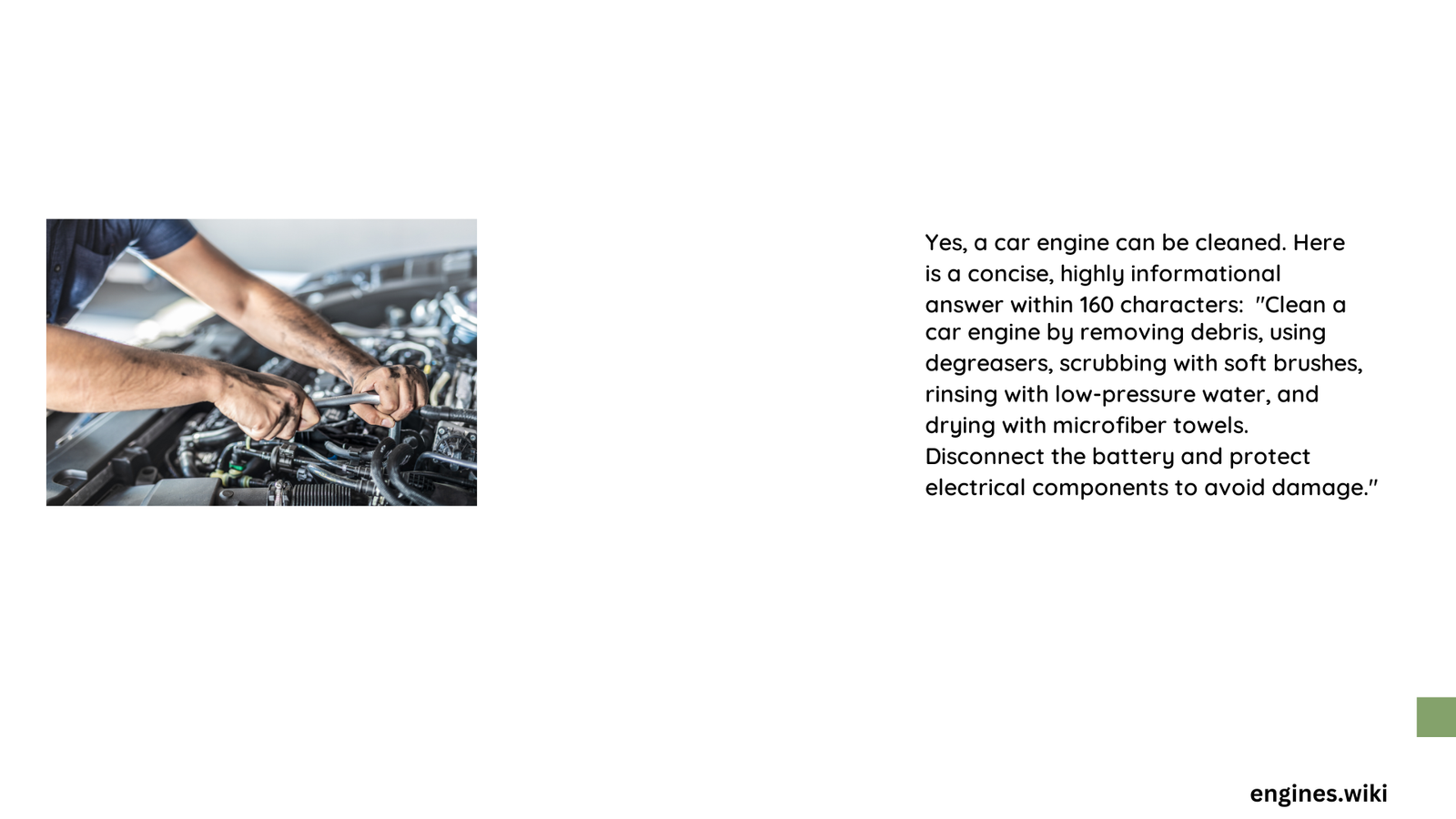Cleaning a car engine is not just possible, but essential for maintaining your vehicle’s performance and longevity. Vehicle engines accumulate dirt, grease, and debris over time, which can impact efficiency and potentially cause long-term damage. Professional mechanics and automotive experts confirm that with proper techniques, tools, and precautions, you can effectively clean your car’s engine bay, removing contaminants and preserving critical mechanical components.
Can You Safely Clean a Car Engine?
What Preparation Is Needed Before Cleaning?
Before diving into engine cleaning, gather these essential supplies:
| Supply Category | Recommended Items |
|---|---|
| Cleaning Tools | Nylon brush, wire brush, air compressor, drip pan |
| Safety Gear | Protective gloves, safety glasses, knee pads |
| Cleaning Agents | Automotive degreaser, microfiber towels |
How to Protect Electrical Components?
Critical steps for protecting sensitive engine parts include:
- Disconnect the negative battery terminal
- Cover electrical components with plastic bags
- Use low-pressure water spray
- Avoid direct water contact with:
- Battery terminals
- Electrical control units
- Ignition system components
What Cleaning Methods Work Best?
Dry Cleaning Techniques
- Use compressed air to remove loose debris
- Employ soft brushes for initial surface cleaning
- Vacuum engine bay with specialized attachments
Wet Cleaning Process
- Apply automotive-grade degreaser
- Allow 10-15 minutes of penetration time
- Use soft brushes for scrubbing
- Rinse with low-pressure water stream
What Products Deliver Optimal Results?
Top recommended engine cleaning products:
- WD-40 Specialist Degreaser
- Versatile application
- Environmentally friendly
-
Adjustable concentration
-
Simple Green
- Eco-friendly formula
- Safe for multiple surfaces
- Effective grease removal
How Often Should Engines Be Cleaned?
Recommended cleaning frequency:
– Professional detailing: Annually
– DIY maintenance: Every 18-24 months
– High-performance/racing vehicles: Every 6-12 months
What Risks Exist During Engine Cleaning?
Potential challenges include:
– Electrical component damage
– Corrosion if improper drying occurs
– Chemical exposure risks
– Potential warranty voiding
Cost Considerations
| Cleaning Approach | Estimated Cost | Time Required |
|---|---|---|
| Professional Service | $100-$250 | 2-4 hours |
| DIY Cleaning | $40-$100 | 1-3 hours |
Expert Tips for Successful Engine Cleaning

- Always work in a well-ventilated area
- Ensure engine is completely cool before cleaning
- Use protective personal equipment
- Work methodically and carefully
- Allow thorough drying before reconnecting components
What Results Can You Expect?
Potential benefits include:
– Improved visual appearance
– Enhanced heat dissipation
– Early detection of potential mechanical issues
– Prolonged engine component lifespan
Conclusion
Cleaning a car engine is not only possible but recommended for maintaining vehicle health. By following professional techniques, using appropriate tools, and exercising caution, you can effectively clean your engine and potentially extend its operational life.
